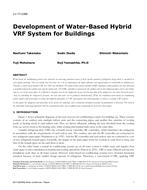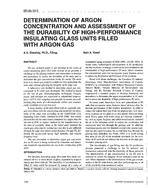This paper uses the Drake Landing Solar Community as a case study to assess the potential of including decentralized water-to-air heat pumps within a solar district heating system. A design exercise is performed using a component-based simulation program to assess the performance of different system configurations and design parameters, and a generic optimization tool to optimize the system life cycle cost. The selected economic parameters represent the current situation of the existing community in Alberta, Canada. The energy performance of the proposed configuration is assessed, as well as the life-cycle costs (capital and operating costs over 20 years). Different targets for solar fraction are assessed, and two types of solar collectors are compared (unglazed vs. glazed flat-plate collectors). The results show that decentralized heat pumps deliver life-cycle savings compared to a solar-only configuration for moderate solar fraction objectives. They also show that, with the selected assumptions and system configurations, the very high solar fraction achieved by the existing system cannot be matched.
Citation: ASHRAE/IBPSA-USA Bldg Simulation Conf, Atlanta, GA, Sept 2014
Product Details
- Published:
- 2014
- Number of Pages:
- 8
- File Size:
- 1 file , 2.8 MB
- Product Code(s):
- D-BSC14-47


